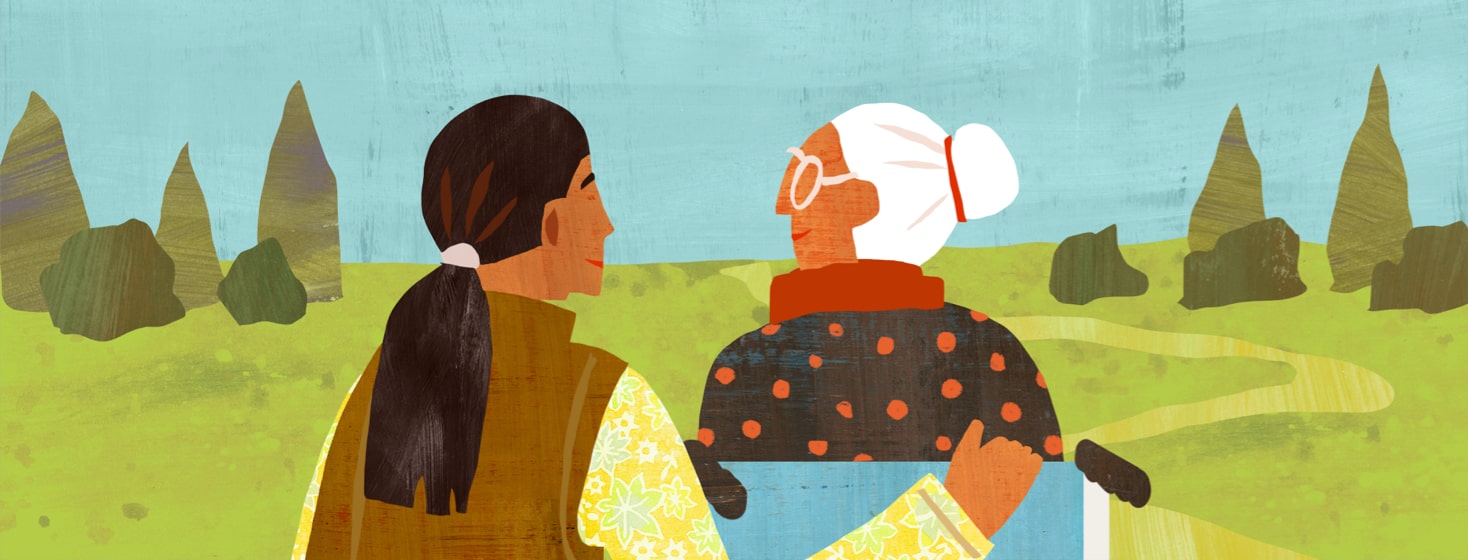My Mother’s Macular Degeneration
Had she lived, my mother would have been 100 years old. As it is she passed away 10 years ago, shortly after her 90th birthday, still mostly enjoying her life, in an assisted living facility. She had lived on her own until almost eighty, before moving there where she spent her last years, partly due to advanced macular degeneration, partly to severe arthritis. Although she felt, for the longest time, she could move back home on her own anytime.
She spent her days in a wheelchair, and with no central vision. Gone were the days filled with crosswords, reading, walking in her own garden. Yet, she remained fairly cheerful most of the time. I know she was occasionally lonely, as she had depended upon my father for not only daily companionship and lively discussions, but he had been the outgoing one, able to easily make friends and start a conversation with anyone.
Living with macular degeneration
Her macular degeneration was the advanced dry form, geographic atrophy. Her description of her scotomas was as a blurry, grey map of Africa or South America. It had advanced before the AREDS supplements became available.
Somehow she kept up with everything. Politics, news, business; whatever was being discussed on TV or radio. She could have conversations and contribute ideas with the best of them. Her memory was legendary. Books on tape were available, but not often used.
Living far apart
I lived over 5000 kilometers away, and our visits were weekly phone calls. My sisters were the ones always there for her, and thank God they were. They helped with her grocery shopping, her banking, whatever was needed.
The only modifiable risk factor for her macular degeneration was that she was a smoker, and had grown up on a farm before daily sunglasses were even a passing thought. As far as we know, my grandparents were free from AMD.
Visits and lessons
She could cross the street alone in her electric wheelchair to the little mall when she wanted. Whenever I visited, she sped across, I think just to show she could beat me. Luckily, there was a crosswalk with a “seniors crossing” sign.
One of the important things I learned from her at this time was not to complain. On one phone call, I could tell she had a cold after telling me she was fine. When I asked why she wouldn’t admit she wasn’t feeling well, she told me there are better things to talk about than her problems, and no one likes a complainer.
Things were not always happy or cheerful and Pollyanna-like. I know she had her times of being down, although she would rarely admit it. It’s no surprise the “girls” who worked there often came to spend their coffee breaks with her.
My diagnosis
My eyesight at 74 is much better than hers was at the same age, perhaps due to the fact that I quit smoking over 20 years ago, and the advances in scientific knowledge such as the AREDS studies which gave us vitamin and lifestyle suggestions.
Our AMD advancing is not predetermined. At any time it could become stable, as much as it could advance.
Mom did it, so can I
I know that if that little grey smudge in my dry eye advances to geographic atrophy, or the anti-VEGF injections in my wet left eye don’t continue to hold back those leaks, that even though I live alone, I’ll still be OK. Mom did it, so can I.
Editor's Note: As of August 2023, 2 drugs known as complement inhibitors — Syfovre® and Izervay™ — have been approved by the US Food and Drug Administration (FDA) to treat geographic atrophy (GA).

Join the conversation